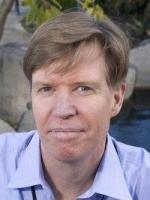Tags
business
china
culture & context
currencies
earthquake
economy
employment
employment
entrepreneur
entrepreneurs
fashion
finance
food
forecasts
Forex
FX
global financial crisis
healthcare
industry
innovation
inside out
internet
interviews
J@pan Inc Blog
Japan
Japan's International Relations
legal
marketing
politics
politics
publisher's message
real estate
technology
the economy
tourism
travel
trends
Yen
"To buy a sponsored link please send an email to info@japaninc.com"
Recent Comments
Employment in Japan
you don't understand at all
designboom article
Wow! - many thanks!
Property sites
Currencies
1 USD = 142.38 JPY
1 NZD = 85.03 JPY
1 AUD = 90.93 JPY
1 EUR = 161.88 JPY
1 GBP = 188.83 JPY
04/19/25 12:24 JST
1 NZD = 85.03 JPY
1 AUD = 90.93 JPY
1 EUR = 161.88 JPY
1 GBP = 188.83 JPY
04/19/25 12:24 JST
Links
BBC World News
- US senator says 'traumatised' man deported to El Salvador moved to new prison
- The forgotten Indian explorer who uncovered an ancient civilisation
- AI dolls are taking over - but real artists are sick of them
- 'It's really hard to have any hope': Gaza doctor describes daily struggle
- Anxiety at US colleges as foreign students are detained and visas revoked
Latest Newsletters
Copyright © Japan Inc Communications, Inc. 1999 - 2023
All Rights Reserved.
Disclaimer | Terms of Use | Privacy Statement
All Rights Reserved.
Disclaimer | Terms of Use | Privacy Statement






